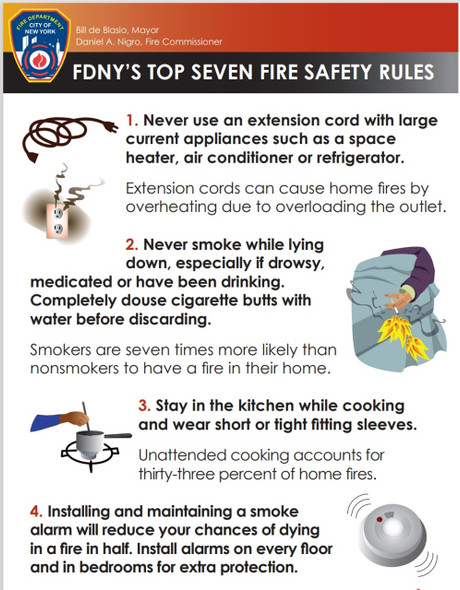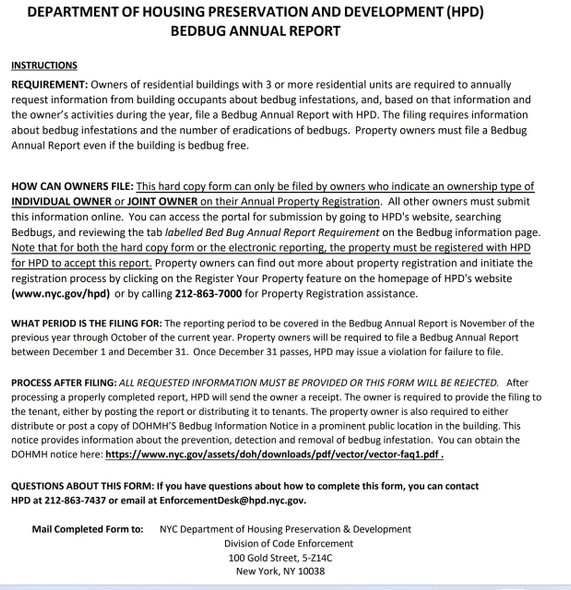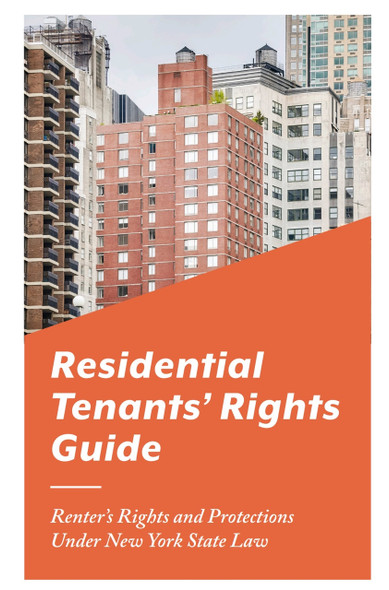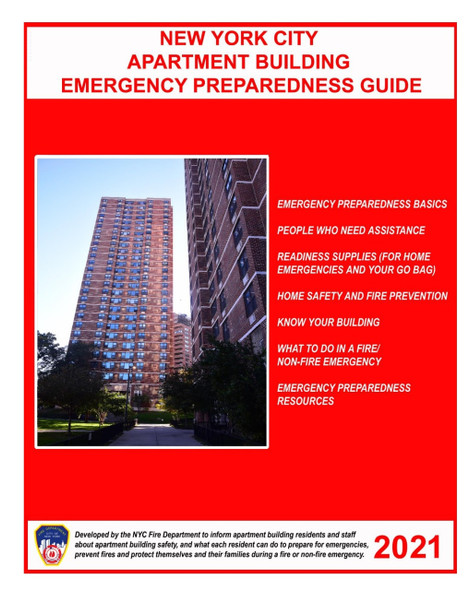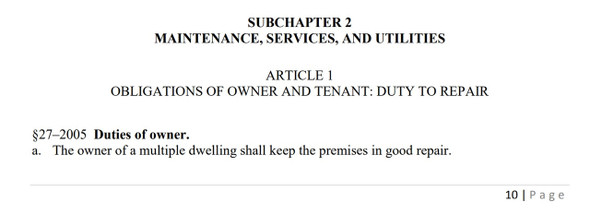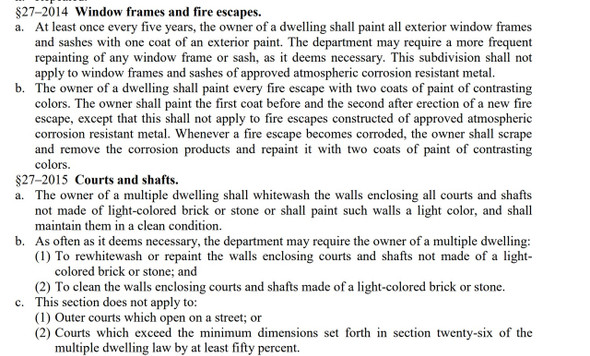Description
Bed bug infestations are increasingly common in New York City. There are steps that can be taken to prevent bed bugs from infesting your home. When bed bugs are present, they can be safely controlled.
This FREE guide will help you:
- Learn more about bed bugs and how they thrive.
- Prevent bed bugs from infesting your home.
- Safely rid your home of bed bugs if they do occur.
- Select and work with a pest control professional.
Bed bugs are small insects that feed mainly on human blood. Bed bug infestations are increasingly common in New York City. Bed bugs can enter homes by latching onto used furniture, luggage and clothing, and by traveling along connecting pipes and wiring. Left untreated, bed bugs can spread quickly.
Preventing and Getting Rid of Bed Bug Infestations
Property owners are required to address bed bug infestations promptly. The surest strategies to keep bed bugs from spreading are prevention, early detection, and rapid treatment.
The Housing Maintenance Code and Health Code both require that property owners address infestations promptly.
The surest strategies to keep bed bugs from spreading are prevention, early detection, and rapid treatment. To learn more, see the Department of Health and Mental Hygiene (DOHMH) Preventing and Getting Rid of Bedbugs Safely guide.
Bed bug infestations usually require the services of well-trained, licensed pest management professionals, also called exterminators. New York State law requires that property owners hire only pest control professionals licensed by the New York State Department of Environmental Conservation (DEC) to treat apartments for bed bugs. The pest control professional should perform an inspection to confirm the presence of bed bugs and to eliminate bed bugs, if necessary. Property owners are expected to make follow-up visits to ensure that there are no signs of a bed bug infestation.
Property owners of rental residential properties are now required to file a Bed Bug Annual Report. See the Bed Bug Annual Report Requirement section of this webpage for the additional requirements. Once the Bed Bug Annual Report has been filed, the property owner is required to either provide the filing receipt to each tenant (upon commencement of a new lease and with each lease renewal) OR post the filing receipt in a prominent location in the building. In addition, the property owner must either distribute to each tenant or post the DOHMH Preventing and Getting Rid of Bedbugs Safely guide, which provides information on the prevention, detection, and removal of bedbugs.
Bed Bug Annual Report Requirement
Local Law 69 of 2017 requires that all multiple dwelling property owners must attempt to obtain the bed bug infestation history from the tenant or unit owner, including whether eradication measures were employed for a bedbug infestation.
Complete your Annual Bed Bug Report. Pursuant to the law, HPD will make the submitted information publicly available through HPDONLINE.
The online application will only allow validly registered property owners and managing agents of multiple dwellings to disclose bedbug infestation history. A building’s property registration must be current. If you have not registered your property, please do so by visiting Property Registration.
Based on public feedback, HPD made a paper form available for property owners who are not able to file electronically due to lack of email or access to a computer. HPD is adopting rules that will clarify that only non-corporate owners, who generally own smaller buildings and may have less available resources for electronic submission, may submit paper reports, as well as clarifying that submission of paper bedbug reports by corporate owners will be rejected and the submission will be deemed noncompliant. Corporate owners, including corporations, LLCs, condominium corporations, cooperatives, and other corporate ownership types must use the electronic form as stated in section 27-2018.2
This adopted rule will make it easier for smaller property owners to file the required bedbug reports while ensuring that corporate property owners continue to meet the electronic filing requirements.
Property owners will be required to file annually between December 1 and December 31 for the previous year from November 1 through October 31.
Property owners will be required to report the following information:
- The number of dwelling units;
- The number of dwelling units, as reported or otherwise known to the owner, than had a bedbug infestation during the previous year;
- The number of dwelling units, as reported or otherwise known to the owner, in which eradication measure were employed during the previous year for a bedbug infestation;
- The number of dwelling units reported in number 3 that had a bedbug infestation after such eradication measure were employed in such units.
When submitting, the owner will certify that either:
- A copy of the most electronic form will be distributed to each tenant of the building upon each lease renewal or the commencement of a new lease issued; or
- A copy of such form will be posted in a prominent location within the building within 60 days of the filing and that the owner will maintain a record that a copy of such form was prominently posted within 60 days of the filing of the information with HPD.
Once the Bed Bug Annual Report has been filed, the property owner is required to either provide the filing receipt to each tenant (upon commencement of a new lease and with each lease renewal) OR post the filing receipt in a prominent location in the building. In addition, the property owner must either distribute to each tenant or post the DOHMH's Stop Bed Bugs Safely guide, which provides information on the prevention, detection, and removal of bedbugs.
Only property owners who file as individual owners or joint owners can file a report using the Bed Bug Annual Filing Form instead of using the portal above. Please follow all instructions carefully. The Form is also available in the following languages:
- Arabic / العربية
- Bengali / বাংলা
- Chinese (Simplified) / 简化字
- French / français
- Haitian-Creole / Kreyòl ayisyen
- Korean / 한국어
- Polish / polski
- Russian / Русский язык
- Spanish / Español
- Urdu / اردو
Please note that New York State law requires property owners to disclose bedbug infestation history dating back one year to new tenants through the Bedbug Disclosure Form. For more information, visit the NYS Homes and Community Renewal website.
Questions?
See the Bedbugs Annual Report FAQs.
DISCLAIMER to comply with the New York City Consumer Protection Law which applies to all businesses operating in New York City: We are small family-owned and family-operated Brooklyn-based business. We are not a City of New York store nor are the website, products or services affiliated with the City of New York or any agency of the City of New York. We ourselves, our business, websites, products, services, or any hyperlinks from its website are not sponsored by, approved by, affiliated with, endorsed by, or connected to the City of New York or any agency of the City of New York, including but not limited to HPD, DOB, DOT, DSNY, FDNY and federal directly or by implication.
DISCLAIMER These codes and forms may not be the most recent version. The State / federal or other regulation department may have more current or accurate information. We make no warranties or guarantees about the accuracy, completeness, or adequacy of the information contained on this site or the information linked to on the state site. Please check official sources.
The requirements for sign / forms content are determined by intended use and by applicable regulation. The BUYER is responsible for determining the appropriate content for a sign or package of signs. WE makes no warranty or representation of suitability of a sign for any specific application. IT IS THE CUSTOMER'S RESPONSIBILITY TO ENSURE THAT THE SIGNS / Forms THE CUSTOMER ORDERS ARE IN COMPLIANCE WITH ALL STATE, FEDERAL, LOCAL, AND MUNICIPAL LAWS. Please review terms and conditions prior to purchase.
For more information about what is required, see the laws that are referenced and the rules applicable to your city and state. This page is for informational purposes only and is not intended as legal advice, professional advice or a statement of law. You may wish to consult with an attorney.









